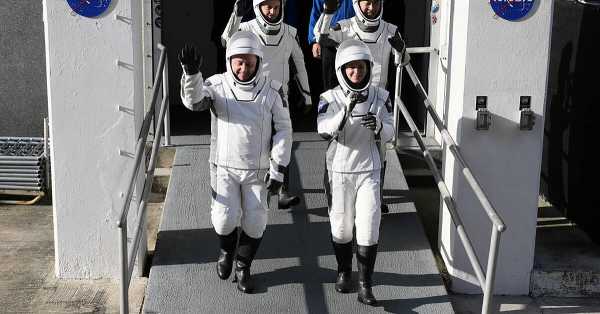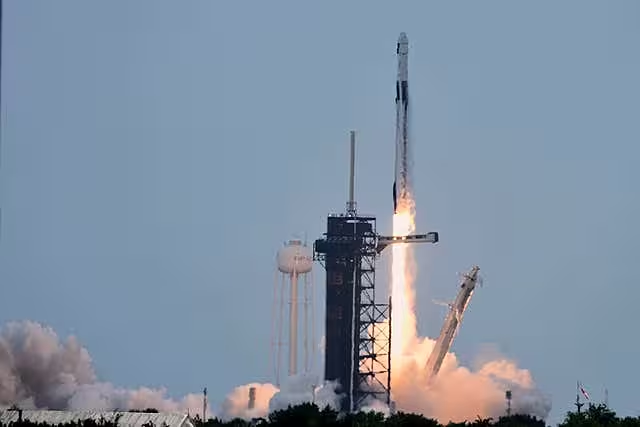
Astronauts who have been sidelined for the past year because of problems with Boeing's Starliner spacecraft launched to the International Space Station on Friday with the help of SpaceX.
The four-member crew, made up of Americans, Japanese and Russians, launched from NASA's Kennedy Space Center. They will replace their colleagues who arrived at the ISS in March to replace two delayed NASA astronauts.
The SpaceX capsule is scheduled to reach the orbiting lab this weekend and remain there for at least six months.
Biologist and polar explorer Zena Cardman, who was scheduled to fly into space last year, was dropped from the mission along with another NASA crew member to make room for the ill-fated Starliner test pilots.

The failure of the Starliner demonstration has forced Butch Wilmore and Suni Williams to transfer to SpaceX to return from the space station more than nine months after they set off on what was supposed to be a week-long journey.
Before the launch, Ms Cardman noted that ensuring their safe return “meant having to step aside”.
“Every astronaut dreams of going to space. None of us want to stay on Earth, but that's not me,” said Ms. Cardman, the flight commander.
Even after launch, “things can change at the last minute, so I'll consider myself very lucky when the hatch opens (to the space station),” she added.
NASA's Mike Fincke – Ms Cardman's co-pilot – was Mr Wilmore and Ms Williams' backup aboard Starliner, leaving the three as the only ones certified to fly the craft.
Mr. Fink and Kimiya Yui (Japan), former military men with spaceflight experience, were preparing for the second Starliner astronaut mission. With Starliner flights delayed until 2026, NASA reassigned them to SpaceX's final flight.
Rounding out the crew is Russian pilot Oleg Platonov. The former fighter pilot was removed from the Russian Soyuz crew several years ago due to an unspecified health issue that he says has since been resolved.
To cut costs in a tight budget, NASA is planning to increase the space station stay from six to eight months, a move already taken by the Russian space agency.
SpaceX is close to certifying its Dragon capsules for longer missions, meaning the newly launched crew could be in space until April.
Meanwhile, the head of the Russian space
Sourse: breakingnews.ie






